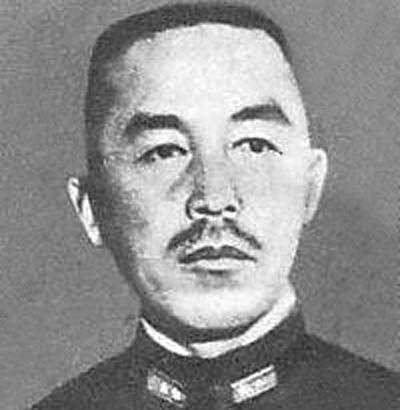When it comes to Japanese admirals during World War II, many people's first impression may be Yamamoto Isoroku.
Indeed, Yamamoto's avant-garde military philosophy and sword-and-sword approach made him one of the best of the Japanese admirals. But even so, Yamamoto was still powerless to turn the tide during his time as commander-in-chief of the Combined Fleet, and at the time of his death, the Japanese Navy was already at a disadvantage in the Pacific Theater.
Does that mean that there is no one in the Japanese Navy to control the situation? In fact, at that time, there was another naval wizard who had been idle at home, that is, Hori Yoshiyoshi.

After the end of World War II, many people pointed out that if the command of the combined fleet had been handed over to Hori Yoshiyoshi instead of falling into the hands of Isoroku Yamamoto and others, the outcome of World War II would probably have been a different outcome.
So, why is Hori Yoshiyoshi so talented that he was "hidden in the snow"?
This also begins with the internal contradictions of the Japanese Navy.
Since the 1930s, the "fleet faction" advocating naval expansion has risen rapidly, while the "treaty faction" that advocates military-political balance has been suppressed, especially after the militarist forces came to power, the "treaty faction" has been squeezed into a desperate situation, and all relevant personnel have been stripped of real power or ordered to retire, and Hori Yoshiyoshi is among them. So, when the Pacific War was in full swing, Hori could only stay at home with his eyes open.
However, although Hori Yoshiyoshi and Yamamoto Areoroku differed in their concepts of naval construction, this did not prevent them from becoming confidants.
(Pictured: Third from the left in the second row is Hori Horiyoshi, and second from right is Yamamoto Igakura)
The two not only worked as peers at the Naval Officers' School, but they were still close to each other after entering the army, and Yamamoto Igoroku even regarded Hori Yoshiyoshi as his idol, which showed hori's ability.
Moreover, Yamamoto's wife, Reiko Mitsuhashi, was introduced to him by Hori Yoshiyoshi.
It turned out that Hori Yoshi and Reiko Mitsuhashi's cousin were good friends, and when he learned by chance that Reiko Mitsuhashi had not yet promised a match, he thought of his single friend Yamamoto Isoroku, so he urged Yamamoto to go on a blind date quickly. Yamamoto Isoroku, as a high-profile young talent at that time, was naturally also deeply liked by the Reiko Mitsuhashi family, so the two quickly married.
The relationship between Hori Yoshiyoshi and Yamamoto Isoroku is too shallow to be described by just a "good" word, and two people who cherish each other can even be described as "heart-to-heart".
Tsukiki Horori later recalled that on the eve of the Battle of Midway, he had a strange dream: the sailboat that was preparing to set sail suddenly fell! Obviously, this did not bode well for the Navy, which was about to set sail, and the commander of the naval fleet at that time was Yamamoto Isoroku.
Although the distraught Horiyoshi tried several times to call Yamamoto to be careful, he considered that it was too unlucky to say such a thing before the expedition, and finally had no choice but to give up. The subsequent development of the Battle of Midway was indeed as he had dreamed, the Japanese Navy was defeated and retreated, and Yamamoto Fifty-Six not only suffered a loss of reputation, but also died soon after. Such a thing is inevitably too coincidental!
However, after Yamamoto's death, Horiyoshi, who was his best friend, did something bizarre: when Yamamoto's admirers offered to build a shrine for him, they were strongly opposed by Horiyoshi.
Supposedly, it was a very honorable thing to be able to enter the shrine as a soldier, so why did Hori Yoshihime obstruct it? Later, Hori Yoshiyoshi gave an explanation, it turned out that he was familiar with Yamamoto's fifty-six dispositions, and he knew that Yamamoto hated these things that sold their reputation the most, and if they were overly respected and worshipped as gods, they would make him uneasy and angry.
Finally, it is worth mentioning that the collection of relics after the death of Yamamoto Fifty-Six was also carried out by Hori Yoshi, and Yamamoto Fifty-Six's long-preserved journal expressing personal determination was also published by Hori Horiyoshi.
I have to say that the relationship between these two people is really unusual!